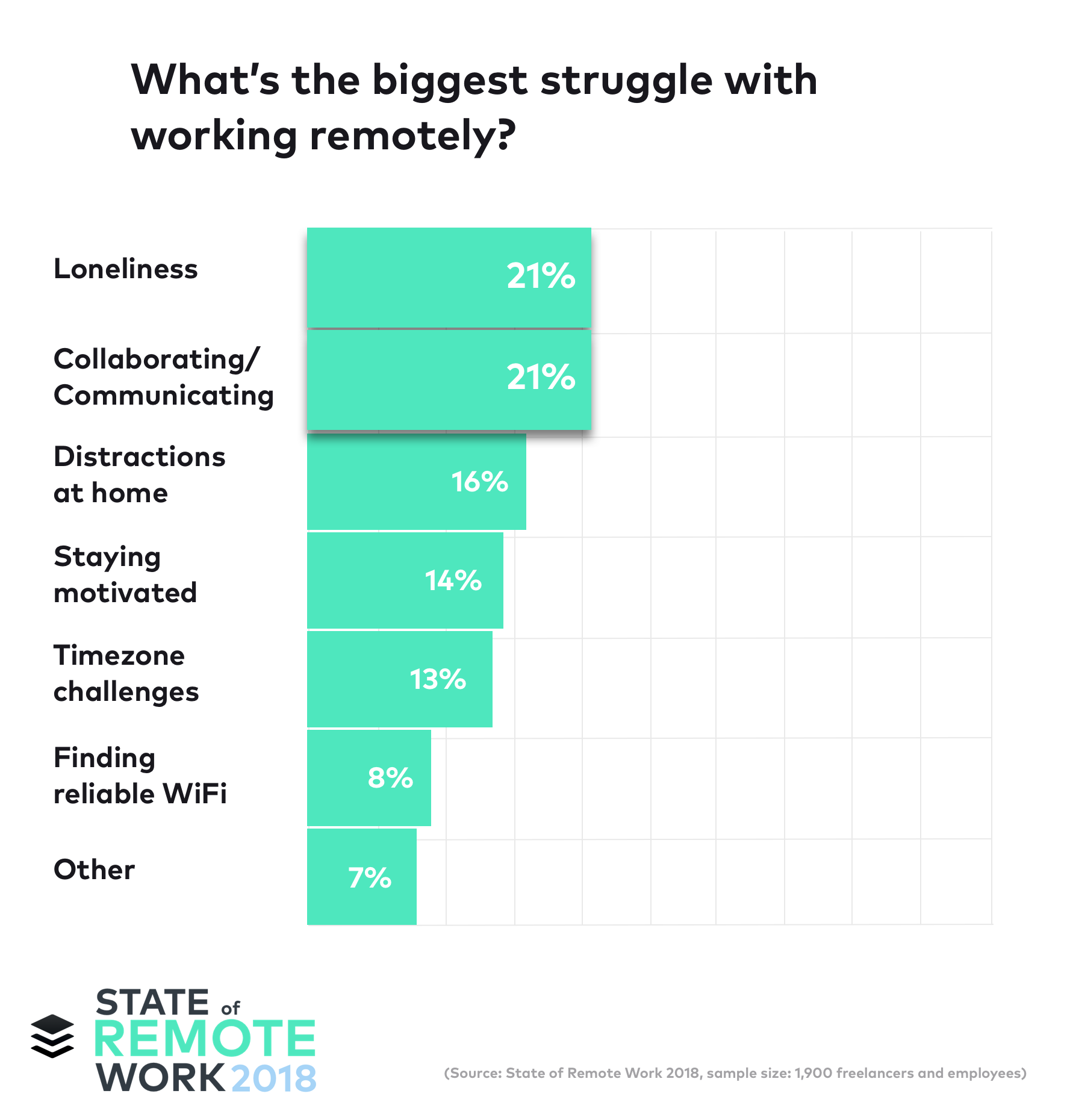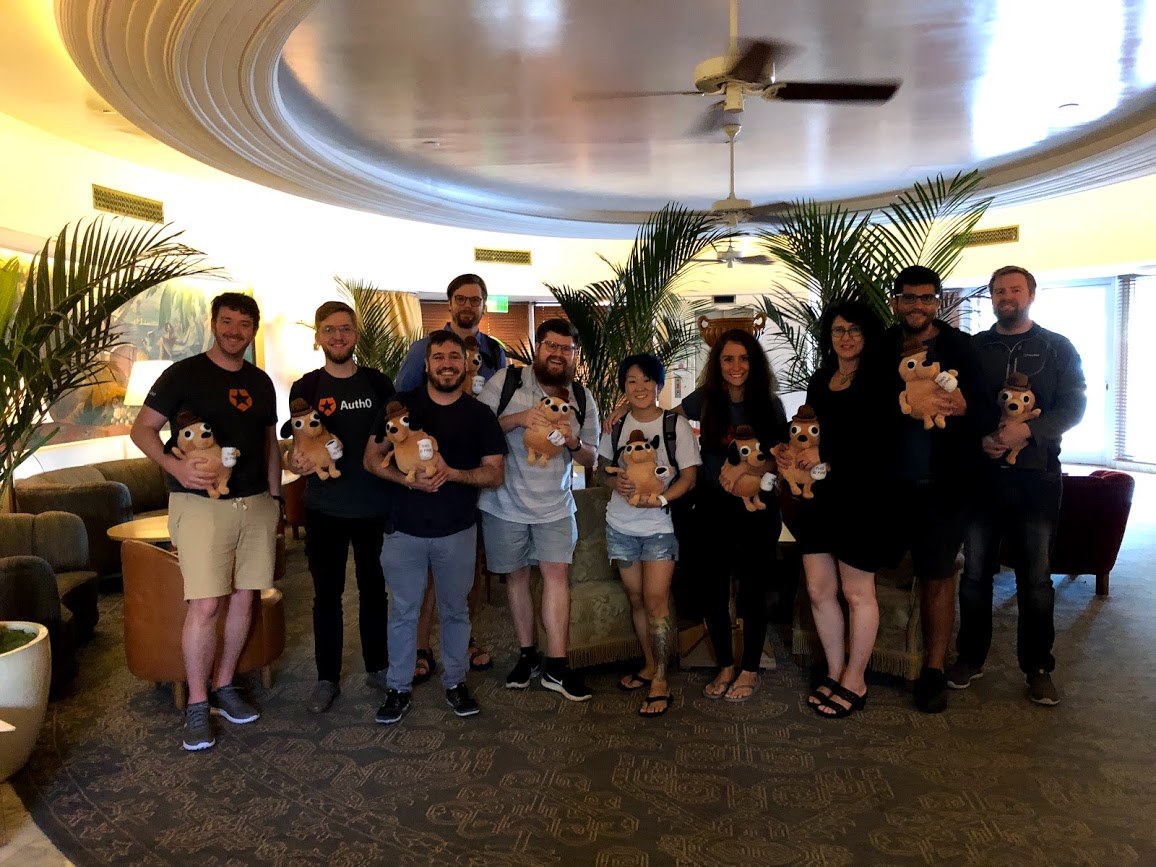Starting my first remote job has been everything I’d hoped for, plus a bit more than I expected. When I first moved to Portland from Gainesville, Florida (Go Gators!) in November 2014, I got a job writing software at a financial company out in the western suburbs. It wasn’t ideal, but it got me out here and I was grateful for it. I quickly got tired of the commute, though — it took over an hour each way in traffic just to drive 11 miles. Ugh. Back in Gainesville I could get anywhere within 15 minutes, so this came as quite a shock.
I made it my mission to get a job downtown to reduce my commute. Before long, I started working at a small non-profit and eventually became the lead front end engineer there. I commuted downtown from Southeast Portland on public transportation in about 40 minutes for three years. It wasn’t the worst commute by any means, but it started to wear on me because it felt unnecessary. Most days, I just sat or stood at my desk wearing headphones writing code and occasionally instant-messaging coworkers. Why did I need to travel somewhere for that? Aside from some focused tech sessions with my team, I rarely felt like there was any reason for me to be physically in the office.
On snow days, furniture delivery days, or not-quite-sick-but-not-quite-well days, I was able to work from home through a VPN. Those were my most treasured and productive days. I could listen to music without headphones, I had no interruptions, and I could just get in the zone and code. Sadly, because we were such a small company — and not a software company — it wasn’t possible to make remote work permanent or even regular. We just didn’t have the infrastructure.
When I got offered a fully remote job at Auth0, I was so happy to have achieved my goal to no longer be tethered to an office or a daily commute. Most of it has been everything I’d hoped for. Since I’ve started working remotely, I’ve slept better, worked out more, cooked more, and spent more time with my friends, girlfriend, and family. Auth0 has also been super supportive of my speaking and travel responsibilities as a Google Developer Expert for Angular. I love getting to work from anywhere.
It hasn’t all been a bowl of cherries, though. Remote work has its own set of challenges, some of which really caught me off guard. I want to share these surprises with you in case you’re looking at transitioning to a remote job (hopefully here at Auth0!).
What’s Surprised Me about Going Remote
Even though there are tons of benefits to having a remote job, there are some things people don’t tell you about working full time from home. An office job is kind of like having a clock speed on a processor or a governor on an engine. The office regulates your life and keeps it maintained. It provides some basic boundaries of when you need to wake up, when to work, and when to come home. It regulates your meal times and your social activities. When you remove the governor or overclock the processor, you can get a lot more performance, but you take more risk.
Most people think about the "no boss over your shoulder" and "no commute" benefits of working remote, but they’ve taken for granted the rest of the regulation: the set schedule (with a physical boundary between home and work), the regulated meal times, and the planned social interaction. Some people jump enthusiastically into remote work and quickly realize it’s too much. Their work time is blending with their home time, they’re eating too often or too much, and they’re desperately lonely.
For me, I would take being fully in control over my time any day over outsourcing that to an office. I’m also extremely introverted, despite how much I love teaching and speaking. I thought I’d be absolutely golden switching to remote, but while it has been amazing, a few things have surprised me.
It Takes Work to Build Your Own Structure
Unlike my job at the non-profit, my role at Auth0 is fairly autonomous. I occasionally collaborate with team members or work on group projects, but the majority of my job is to write great technical content alone. This caught me a bit off guard after a life of daily stand-ups and regular team meetings. It’s back on me to set and maintain a schedule. Unlimited freedom takes a lot of discipline.
“A remote job requires you to build your own structure into your day to stay productive, like regular workouts and breaks.”
Tweet This
I was surprised by how long it took me to get into the "self-motivated focus" routine by building my own work day from scratch. I think part of this was due to traveling so much this fall, but it still felt like it took longer than I predicted to get into a routine. I had always imagined that, whenever I finally started working from home, I’d wake up at 5 am, hit the gym, and crank out a super productive workday every single day with no trouble.
It turns out real life is a bit more complicated than that. That surprised me because it’s not as if I haven’t had to focus in the last few years. For example, when I was making my first Angular video course, I had to force myself to crank out at least a few videos every evening after work in order to get 200+ videos finished. Or, at development jobs during the day, I had to focus to get a particular feature done or bug resolved on time. There’s a key difference with those that’s a principle of life and work: work expands to the time you give it. If you give yourself three days to work on something, guess how long it will take? Yet if your boss tells you a new feature in the application needs to be done by the end of the day, guess how long it will take?
I’ve learned that working from home and being autonomous, I have to give myself shorter deadlines and more work. I’ve also built in structure to my day through scheduled gym time and breaks. It’s certainly been a slower process than I imagined, but I’m getting into a solid routine.
Even Introverts Get Lonely
As I said earlier, I’m a hardcore introvert. I love my alone time. Even so, I’ve been surprised by my need for social time. I worked with some really great people at the non-profit and I miss them much more than I anticipated. On top of that, when you cut out meetings, chatting with coworkers in the kitchen, commuting on public transportation, and going out for lunch or coffee during work, you end up with...a lot of alone time. That goes double when you live by yourself as I do. I'm not alone in this, either. In Buffer's State of Remote Work 2018 survey, they found 21% of remote workers struggled with loneliness.
->
One of the best decisions I made when I joined Auth0 was to also join a new gym that offered classes. I had been going to a 24-hour bare bones gym. The new gym has a triple benefit: it gets me out of the house, it gets me around people, and it gets me a killer workout every time. If I was still going to the 24-hour gym, I’d have yet another thing I’d be doing alone.
“A great way to combat loneliness while working remotely is to take up new hobbies with friends.”
Tweet This
I also run the Angular Portland meetup, so that’s another scheduled event that I go to about every month. Beyond that, it’s on me to be purposeful with scheduling time with friends. I’ve figured out that I need to see some pals about one or two times a month to retain my well-being. Of course, I still spend a bunch of time with my girlfriend, but that’s sort of a different category of social time. Everyone needs friends outside of their relationship, but especially when you’re inside alone all day!
It’s Hard to Build Relationships Online
Finally, I’ve been surprised by how necessary occasional in-person communication is with coworkers, even when you’ve got great remote infrastructure. We use Slack and Zoom to stay in touch with each other at Auth0. Those help a lot, but I won’t lie to you. Meeting my coworkers in person at our team offsite in Miami this September made a big difference in feeling bonded with them. The same was true of my onboarding at our Bellevue office, where I met folks like our CEO Eugenio Pace and Chief Architect Vittorio Bertocci and had coffee with my teammate Jenny O’Brien.
Along those same lines, it’s a heck of a lot harder to pair program remotely. Not being able to just hand the keyboard off to someone or debug directly on their machine is a pain. So far, I’ve paired with teammates by simply cloning the code and running it myself (or them doing the same). We haven’t checked out Visual Studio Code’s Live Share feature yet, but we definitely should. I have a feeling it will help a lot. It still won’t replace being able to wander over to a coworker’s desk, but at least it’s a start.
Auth0 does a great job with remote infrastructure and encouraging lots of communication between teams, but as much as I love that, I have to admit that there is no substitute for meeting coworkers in person to build relationships. That’s why I can’t wait to go to my first annual company offsite next May. It will be great to meet everyone in person!
About Auth0
Auth0 by Okta takes a modern approach to customer identity and enables organizations to provide secure access to any application, for any user. Auth0 is a highly customizable platform that is as simple as development teams want, and as flexible as they need. Safeguarding billions of login transactions each month, Auth0 delivers convenience, privacy, and security so customers can focus on innovation. For more information, visit https://auth0.com.
Set Yourself Up for Remote Success
If you’re thinking about going remote, dreaming of days of unending focus while basking in your cave of solitude, you may want to do some thinking ahead. Look into community gyms, adult education, and new hobbies you can take up with some friends. Build some structure into your ideal calendar. Yes, even my fellow introverts should do this. Also, if you have a chance to meet your coworkers at any point in person somewhere, even if you’re just on vacation in their city, do it! You’ll be glad you spent a little time with them face-to-face.
Whether you work remote for Auth0 or someone else, I wish you the best in your journey! If you’re working remotely now, please feel free to share any tips you’ve learned in our Community post for this article.
About the author

Sam Julien
Director of Developer Relations

